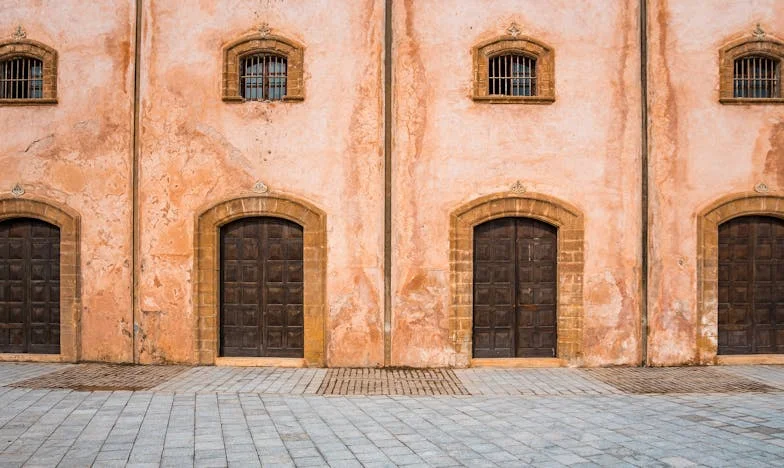The Night I Let the Last Train Go
“You’re late again, Chris,” my dad’s voice echoes in my head, louder than the train that just pulled away. I stand on the cracked concrete of the Southfield station platform, the air thick with the smell of rain and something else—my own desperation. The clock above the ticket booth blinks 10:47 PM; the last train’s red taillights dissolve into the darkness. I take a drag from a cigarette I swore I’d never touch again. The smoke burns my throat, sharp and honest, unlike anything I’ve been in years.
I wasn’t late because of traffic, or some emergency. I was late because I hesitated. My feet glued to the ground, the weight of a year’s worth of bad decisions pinning me down. I could hear my mother’s voice on the other end of the line from earlier, tight and brittle: “Just come home, Chris. Your sister needs you. We all do.”
But I couldn’t. Not then. Not tonight. Not after what I’d done.
The wind picks up, rattling the metal benches and sending a discarded Starbucks cup skittering across the platform. I flick the ash and watch it spiral down, half-expecting it to sizzle on the damp pavement. Everything feels suspended—the next move, the next breath. My phone buzzes in my pocket. It’s Becky, my little sister. I stare at the screen until it stops.
I can almost hear the scene in the living room back home. Mom pacing, clutching her phone, Dad pretending to read the sports section, his jaw clenched, his eyes flicking to the front door every few minutes. Becky curled on the couch, knees drawn up, her hoodie pulled low over her face. The silence between them, thick as tar. All waiting for me.
I throw the cigarette down, grinding it out with my heel. My hands shake, not from the nicotine but from something deeper. Guilt. Shame. Fear. I’m twenty-six, and I can’t even face my own family.
It started a year ago, or maybe it started years before that. I lost my job at the car dealership—downsizing, they said, but deep down I knew it was because I couldn’t keep up. The late nights, the drinking, the endless pressure to perform. I told myself I was fine. That I’d find another gig, that I’d hold it together for Mom and Dad, for Becky. But the days stretched into weeks, then months. Bills piled up. I borrowed money from friends, then from people I shouldn’t have. The drinking got worse. My girlfriend, Sarah, left. The spiral was almost comforting in its inevitability.
Tonight was supposed to be different. Becky’s graduation party. She was the first in our family to make it through college—full scholarship, honors, the whole thing. Mom had been planning the party for months. There’d be banners in the backyard, Aunt Linda’s potato salad, Dad grilling burgers, old neighbors dropping by with cards and cash. All they asked was that I show up. Be present. Be a brother.
But I couldn’t even do that.
My phone buzzes again. This time, I force myself to answer. Becky’s voice is quiet, hesitant. “Chris? Are you okay?”
I swallow, my mouth dry. “Yeah. I—I missed the train. I’m sorry, Beck.”
There’s a pause on the line. I wait for the usual disappointment, the anger. But she just sighs. “Mom’s worried. Dad’s… well, you know. I just wanted you here. It’s not the same without you.”
I press my forehead against the cold metal pole, fighting the urge to cry. “I screwed up. Again.”
“You don’t have to keep doing this,” she says softly. “It’s just one night. You can come home tomorrow. Or the next day. We’ll still be here.”
The words hit me harder than any accusation. For years, I convinced myself that staying away was what they wanted—that I was protecting them from my mess. But maybe, just maybe, I was only protecting myself from their forgiveness.
The parking lot is empty except for an old Chevy, headlights off, waiting for someone. I start walking, my footsteps echoing in the quiet. The neighborhood is asleep, but my mind is racing.
I remember the last time I saw Becky. It was Christmas, and she handed me a mug of cocoa, her eyes searching mine. “You can’t keep running forever, Chris,” she’d said. “We love you. Even when you mess up.”
But I couldn’t hear her over the roar of my own self-loathing. I left after dinner, before the presents, before the family photo. I haven’t been home since.
Tonight, something shifts. Maybe it’s the cold, or the loneliness, or the way Becky’s voice trembles with hope instead of hurt. I don’t know. All I know is I’m tired—tired of missing out, tired of the shame, tired of pretending I’m okay.
I pull my jacket tighter and start down the street toward the all-night diner on Main. I’ll sit there until sunrise, order bad coffee, and figure out my next move. Maybe I’ll call Mom. Maybe I’ll get on the first morning train and go home. Maybe I’ll finally tell them everything—the drinking, the debt, the fear that I’m just one mistake away from disappearing completely.
Or maybe I’ll just sit here, on the edge of my old life, and wait for someone to come find me.
As the neon sign of the diner flickers on, I wonder: How many chances do we really get before the people we love stop waiting? And what does it take to finally step off the platform and go home?
